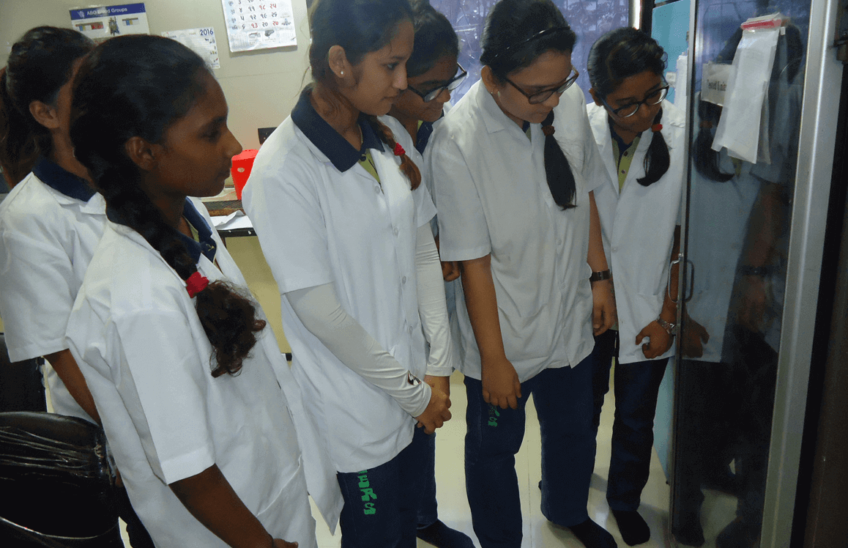
For the CBSE framework to support student progress and adjust to the changing nature of education, innovative teaching practices are essential. One important area where CBSE schools may lead is in technology integration, providing interactive online learning environments, virtual classrooms, and multimedia materials that accommodate a range of learning preferences and styles. Students can connect with content in dynamic ways that encourage greater knowledge and critical thinking abilities by utilizing digital tools and resources.
Additionally, project-based learning strategies that prioritize interdisciplinary cooperation and real-world problem-solving can be investigated by CBSE schools. Encouraging students to work on projects that incorporate ideas from several different areas encourages originality, creativity, and a deeper comprehension of how knowledge is applied in real-world situations. Additionally, project-based learning encourages independence and self-directed learning, giving students the tools they need to take charge of their education, follow their passions, and acquire the critical 21st-century skills needed to succeed in a world that is becoming more and more interconnected.
Adaptive Teaching Methods in CBSE
Adaptive teaching methods are increasingly recognized as essential within the CBSE system to cater to diverse learning needs and styles. One adaptive approach involves differentiated instruction, where teachers tailor their teaching strategies, materials, and assessments to accommodate varying student abilities and interests. By incorporating flexible grouping, personalized learning tasks, and varied instructional formats, teachers can create inclusive classrooms where all students can thrive and succeed at their own pace.
Furthermore, embracing technology-enhanced learning tools and platforms can facilitate adaptive teaching practices within CBSE schools. Utilizing educational software, interactive multimedia resources, and online learning platforms enables teachers to deliver content in engaging and interactive ways that cater to different learning modalities. Additionally, digital assessments and feedback mechanisms allow for real-time monitoring of student progress, enabling teachers to adjust their instructional approaches and provide targeted support where needed. By embracing adaptive teaching methods that prioritize differentiation and technology integration, CBSE educators can create dynamic learning environments that promote student engagement, achievement, and lifelong learning.
Encouraging Research and Inquiry-Based Learning
Within the CBSE framework, research and inquiry-based learning are encouraged to help students develop into critical thinkers, problem solvers, and lifelong learners. Inquiry-based projects and assignments, where students are encouraged to investigate areas of interest, pose questions, do research, and analyze findings either individually or cooperatively, are one successful curriculum-based approach. Students gain important research skills, such as information literacy, data analysis, and critical evaluation, by participating in practical investigations and inquiry-based assignments. These activities set them up for success in the classroom and in their future efforts.
In addition, encouraging a culture of intellectual inquiry and curiosity in the classroom pushes students to look beyond the pages of required textbooks for answers to their queries and to try new things. By offering chances for open-ended discussions, urging experimentation, and supporting individual study, teachers can support inquiry-based learning. CBSE schools foster an environment where students are driven to explore knowledge, think critically, and make meaningful contributions to their communities and the wider world by fostering a feeling of inquiry and intellectual curiosity.
Empowering Teachers as Innovators
For the CBSE system to promote innovation, adaptation, and ongoing educational development, teachers must be given the freedom to innovate. It is possible for instructors to stay up to date on the latest trends and best practices in education by offering professional development opportunities that center on creative teaching approaches, technological integration, and pedagogical innovations. In order to foster a culture of innovation and experimentation, CBSE schools should provide workshops, seminars, and training sessions that enable teachers to try out new teaching techniques, resources, and methods in the classroom.
Additionally, fostering environments that value teacher autonomy, cooperation, and participation enables educators to take charge of their own professional development and look for creative solutions to problems in the classroom. By creating venues for the exchange of best practices, peer mentoring, and cooperative projects, educators may share knowledge, grow from one another, and work together to improve the CBSE environment.
Leveraging Technology in CBSE Education
Utilizing technology in CBSE education presents a wealth of chances to improve student engagement, learning outcomes, and readiness for the digital age. Teachers are able to build dynamic and immersive learning environments that accommodate a variety of learning styles and preferences by incorporating interactive digital tools, multimedia materials, and online learning platforms into the curriculum. Through the use of multimedia presentations, virtual laboratories, and educational apps, CBSE teachers may impart difficult ideas in methods that students find more interesting and that help them retain the information.
Additionally, within the CBSE framework, technology allows for personalized learning experiences that are tailored to each student’s requirements and interests. Teachers can customize lessons and interventions based on insights into student progress, strengths, and areas for improvement by utilizing artificial intelligence-driven systems, data analytics, and adaptive learning platforms. Furthermore, digital collaboration technologies help students communicate, collaborate, and share knowledge, which helps them develop cooperative problem-solving abilities and gets them ready for future collaborative job settings.
Frequently Asked Questions
Q1. What are the most important things to think about while ranking the best CBSE schools?
A. Academic reputation, faculty expertise, curriculum quality, infrastructure, extracurricular activities, student-teacher ratio, alumni success, values and ethos, facilities, and the overall learning environment supportive of holistic development and academic excellence are important factors to take into account when assessing top CBSE schools.
Q2. What benefits come with attending a top CBSE school?
A. Benefits of attending a top CBSE school include well-designed curricula that emphasize holistic development, knowledgeable teachers who encourage critical thinking, access to cutting-edge facilities and resources, a wide range of extracurricular activities, accredited certifications, and routes to success in postsecondary education and the workforce.
Q3. How do top CBSE schools prepare students for competitive exams?
A. Top CBSE schools By providing mock exams, exam-focused study materials, and specialist coaching, schools may help students become ready for competitive exams. By offering advice on time management techniques, exam patterns, and subject-specific preparation, they provide students the tools and self-assurance they need to succeed in competitive exams.
Q4. How are the best CBSE schools able to provide a welcoming and constructive learning environment?
A. Top CBSE schools in gujarat Encourage tolerance, compassion, and diversity among students and faculty to create a welcoming and inclusive learning environment. They place a high value on establishing safe areas for honest communication, honoring cultural diversity, providing assistance for a range of needs, and aggressively combating instances of prejudice or exclusion.

